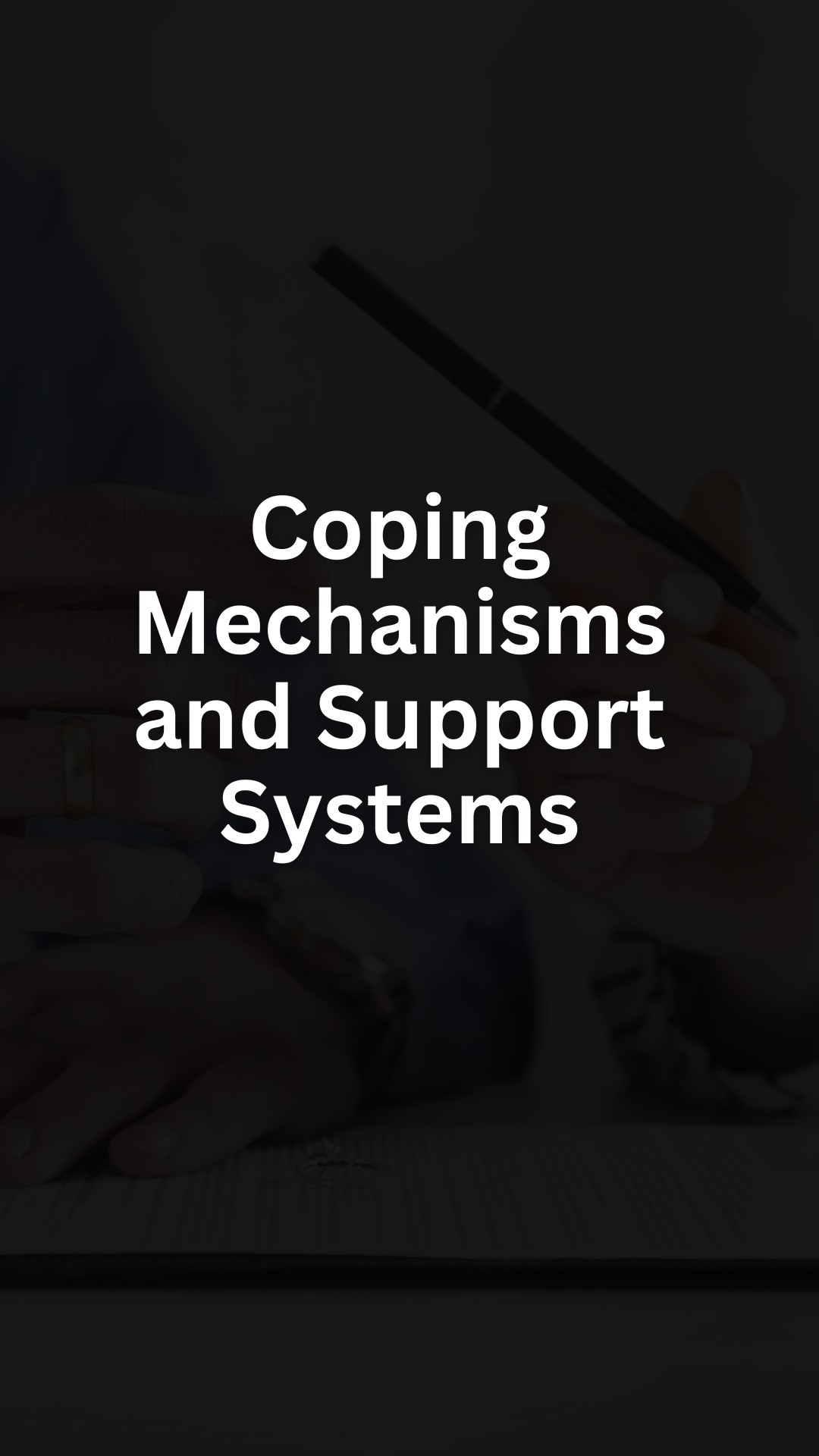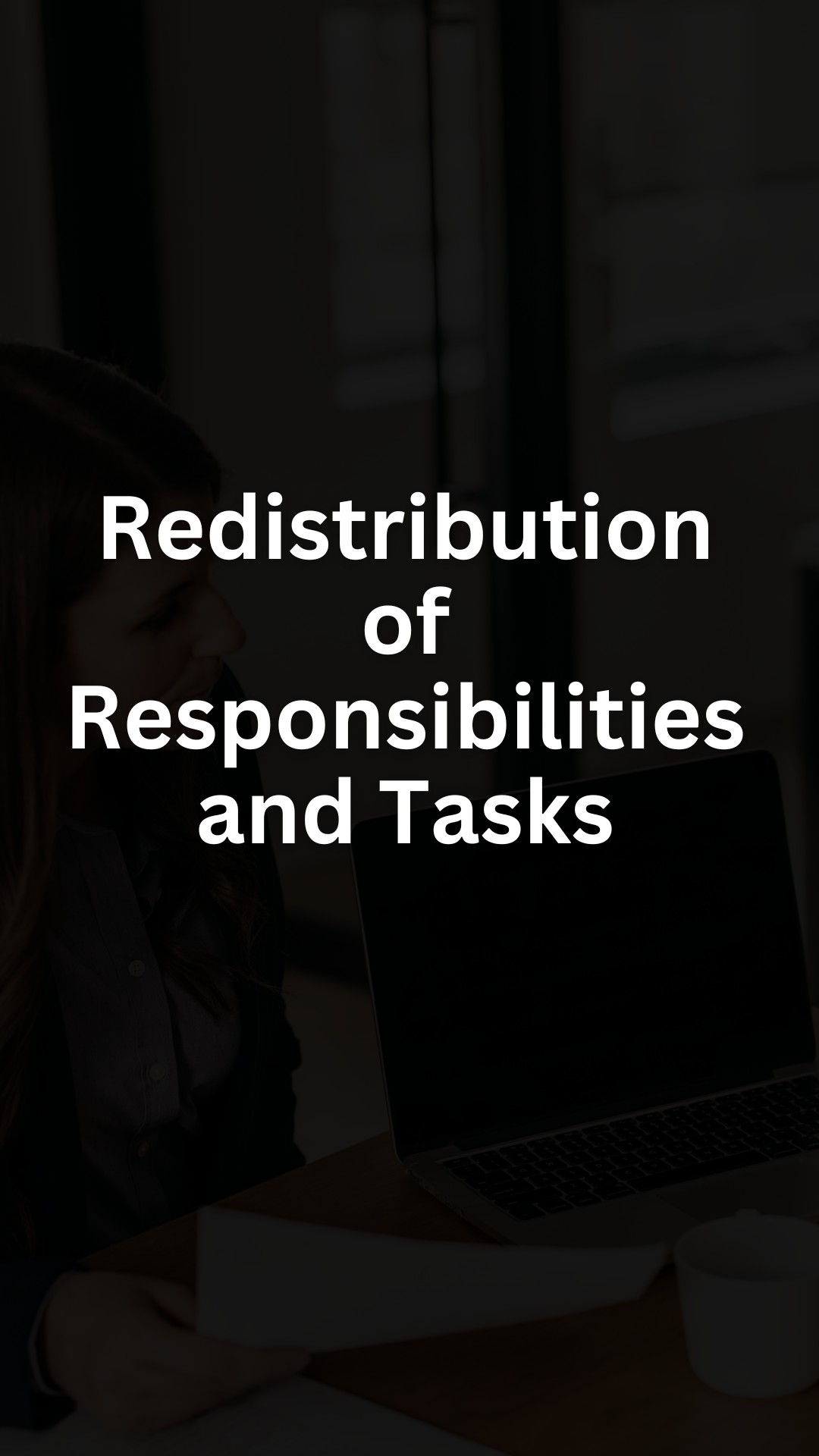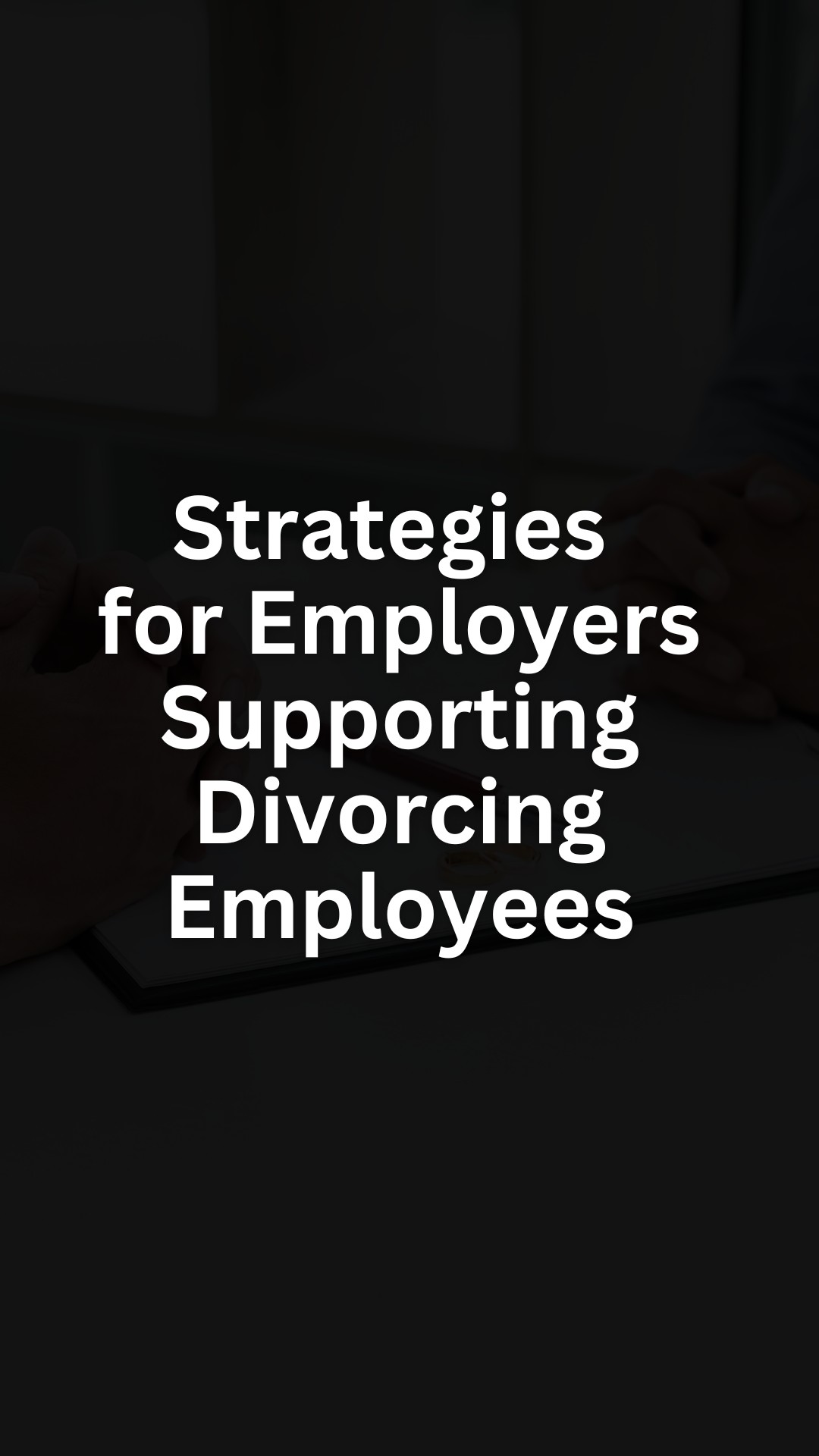Divorce can affect many aspects of your life, including your work.
When you’re going through a divorce, your job performance might decline due to stress and emotional turmoil.
It’s common to feel distracted, have trouble focusing, or even experience a decrease in productivity during this period.
You may also find that your relationship with colleagues and supervisors changes.
Stress from home can spill over and affect how you interact with others at work.
Maintaining professionalism becomes harder when your personal life is in upheaval.
It’s important to find ways to manage these changes effectively.
Balancing work and personal life becomes more challenging during a divorce.
You might need to take time off for court dates or meetings with your lawyer, which can impact your work schedule.
Understanding these challenges and finding strategies to cope can help you manage both your personal and professional life better during this tough time.
Understanding Divorce and Work Performance

Divorce can heavily impact your job. Emotional stress, diminished concentration, and increased absenteeism are common issues that arise during this challenging time.
Effects of Emotional Stress on Productivity
When going through a divorce, you may experience anxiety, sadness, and anger. These feelings can make it hard to stay focused at work.
You might find it difficult to concentrate on tasks you previously handled with ease.
This drop in productivity can cause missed deadlines and mistakes.
Additionally, you may need to take more time off to handle legal matters or to recover emotionally.
Frequent absences can disrupt your work routine and affect your job performance.
Make sure to address these issues early. Seek help from friends, family, or a counselor to manage stress better.
This support can help you regain your focus and improve your performance at work.
Communication With Colleagues and Management

Divorce can bring many changes and stress into your life, which may affect how you communicate at work. Maintaining clear and respectful communication is crucial.
Navigating Professional Relationships Post-Divorce
After a divorce, you might feel emotionally drained or distracted.
Be transparent with your colleagues and management but keep details to a minimum.
Strategies:
- Inform close colleagues who need to know about your situation briefly.
- Schedule a meeting with your manager to discuss any necessary changes in your workload.
- Use professional language: Keep your interactions business-focused and polite.
- Ask for support: If needed, request flexible working hours or assistance from HR.
Avoid:
- Sharing too much personal information.
- Allowing your emotions to control your workplace interactions. Maintain professionalism at all times.
Financial Implications and Career Progression

Divorce can cause shifts in your finances and career. You may need to adjust to new financial responsibilities and think about how your career path might change.
Managing Alimony and Child Support
After a divorce, you might need to pay alimony or child support. This will affect your budget. Make a careful plan to manage these costs.
Set aside a part of your income to cover these payments.
Create a budget that includes:
- Alimony: Monthly amount, duration
- Child Support: Monthly amount, other expenses for kids
Consider talking to a financial advisor. This can help you adjust to new expenses and taxes.
You may need to make lifestyle changes. Look for ways to save money, like reducing unnecessary spending.
Impact on Long-term Career Planning
Divorce can change your career goals. You might need more income or benefits. Think about your job and if it meets your new needs.
You may want to seek promotions or new job opportunities.
Adjust your career plans by:
- Setting New Goals: Better salary, job stability
- Additional Training: Courses, certifications
- Networking: Connect with industry contacts
Ask for support at work if you need it. This helps manage stress and maintain job performance.
Stay focused on your career growth and explore different options that fit your new life situation.
Work-Life Balance During Divorce Proceedings

Going through a divorce can disrupt your daily routine. Balancing work responsibilities while managing legal appointments and maintaining focus at work is crucial.
Allocating Time for Legal Appointments
Scheduling legal meetings during divorce proceedings can be a challenge.
It’s important to work with your employer to potentially adjust your work hours. You might need to use paid time off or arrange for flexible working hours.
Communicate clearly with your legal team to avoid last-minute disruptions.
Make a calendar: Use digital tools or a physical planner to track your legal appointments and work deadlines to ensure nothing overlaps.
Set priorities: Focus on the most important tasks at work and try to schedule legal meetings during less busy periods.
Inform your colleagues about your situation if appropriate, to gain their support.
Maintaining Concentration at Work
Divorce proceedings can be emotionally taxing and affect your concentration at work. It’s essential to create a supportive work environment.
Take breaks: Short, frequent breaks can help you recharge and maintain focus. A walk or quick meditation session can work wonders.
Stay organized: Keep a clean and organized workspace. This can help reduce stress and improve your ability to focus on tasks.
Seek support: Consider talking to a trusted colleague or seeking professional counseling. Having someone to talk to can lighten the emotional load.
Coping Mechanisms and Support Systems

Handling divorce while maintaining your work life can be tough. Utilizing available resources and seeking external support can make a big difference.
Utilization of Employee Assistance Programs
Employee Assistance Programs (EAPs) offer many services to help you through difficult times.
These programs often provide counseling sessions, which can help you manage emotions and stress.
EAPs sometimes offer legal advice, which may be necessary during a divorce.
Additionally, they can guide you on financial planning to help you manage single-income budgets.
Some EAPs have workshops or seminars on various topics related to personal development and stress management.
Taking advantage of these resources can improve your mental health and work productivity. Remember, these services are confidential, ensuring your privacy.
Seeking External Support
Seeking help outside of work is also crucial.
Therapy can be beneficial, providing a safe space to express your feelings.
Support groups for divorced individuals offer a sense of community and shared experiences, which can be comforting.
Family and friends can also be a strong source of support. Communicate your needs clearly and let them know how they can assist you.
Additionally, online resources like forums and social media groups can provide instant support and advice. Just ensure these sources are credible.
Balancing professional help with personal support can help you cope better during this challenging time.
Effects on Team Dynamics and Morale

Divorce can impact your team’s dynamics. Your emotions and stress might affect how you interact with coworkers. This can lead to misunderstandings or conflicts.
Communication may suffer. You might not be as focused or clear when talking to teammates. This can cause delays or errors in projects.
Team morale can also be affected. If others see you’re struggling, they might feel worried or stressed too. This can lower overall team spirit and productivity.
Support from your team is important. Colleagues can help by being understanding and patient. This can improve the workplace atmosphere.
Here’s a quick summary of potential effects:
| Effect | Description |
|---|---|
| Communication issues | Misunderstandings or lack of clarity in interactions. |
| Team conflicts | Increased chances of conflicts due to emotional stress. |
| Lower morale | Worry among team members when they see you struggle. |
| Decreased productivity | Projects may slow down due to focus and communication problems. |
Redistribution of Responsibilities and Tasks

After a divorce, daily routines change. Tasks that were once shared now fall on one person. This can impact your work life.
You might need to reorganize your schedule. If your ex was responsible for morning drop-offs, you need to adjust your morning routine. This change can affect your arrival time at work.
It’s also important to look at responsibilities at home.
Cooking, cleaning, and shopping are essential tasks. You may need to figure out how to fit these into your day without affecting your job.
Tips for Managing Tasks
- Create a schedule: Write down all your tasks and when to do them.
- Delegate duties: If you have older children, ask them to help with simple chores.
- Set priorities: Focus on the most important tasks first.
Example Schedule
| Time | Task |
|---|---|
| 6:00 AM | Wake up |
| 6:30 AM | Prepare breakfast |
| 7:00 AM | Drop off kids at school |
| 8:00 AM | Arrive at work |
| 5:00 PM | Pick up kids |
| 6:00 PM | Prepare dinner |
| 7:00 PM | Help with homework |
Concentration, Decision-Making, and Job Performance

Divorce can greatly affect your focus at work, your ability to make decisions, and how well you do your job.
Cognitive Effects of Personal Stress
Dealing with a divorce can be stressful. This stress often makes it hard to concentrate.
You might find your mind wandering. Tasks that used to be easy might seem more difficult.
Decision-making can also suffer. You may second-guess yourself more often. Stress can cloud your judgment.
Job performance often goes down during a divorce. You might miss deadlines or make more mistakes than usual. This can impact not only your work but also how your coworkers and supervisors view your reliability.
Transforming Personal Growth into Professional Development

Divorce can be challenging, but it also brings opportunities for personal growth.
Learning from these experiences can help you in your career.
Building Resilience
Resilience is key. Life’s challenges can make you more adaptable.
This skill is valuable at work.
Improved Communication
Going through divorce often requires clear and open conversations.
Better communication skills can boost your interactions with colleagues and clients.
Time Management
Managing life changes can teach you to prioritize tasks.
Efficient use of time is essential in professional settings.
| Skill | Benefit at Work |
|---|---|
| Resilience | Adapting to new situations |
| Communication | Clearer interactions |
| Time Management | Better organization and productivity |
Emotional Intelligence
Handling emotions effectively can improve relationships at work.
Understanding your emotions helps to understand others’ feelings too.
Empathy
Experiencing difficult times can make you more empathetic.
This can improve teamwork and conflict resolution.
Privacy and Boundaries in the Workplace

Dealing with a divorce is hard, and keeping your personal life private at work can be a challenge.
It’s important to set clear boundaries.
You don’t need to share every detail with your coworkers.
Decide what you are comfortable sharing and stick to it.
Consider these tips:
- Communicate Clearly: Let your manager know if you need time off but keep details minimal.
- Take Breaks: Use your break times to handle personal matters. This keeps work time focused on tasks.
- Use Support Services: Many companies offer counseling. Use these resources instead of talking to colleagues.
Privacy Tips:
- Use a quiet space for personal calls.
- Store personal documents securely.
- Limit using work email for private issues.
Strategies for Employers Supporting Divorcing Employees

Supporting employees through a divorce can boost morale and productivity.
- Flexible Work Hours: Allow employees to adjust their schedules. This can help them manage legal appointments and personal matters without added stress.
- Employee Assistance Programs (EAPs): Offer counseling services through EAPs. These services can provide much-needed emotional support.
- Open Communication: Encourage employees to share their needs. Being open can help them feel understood and supported.
- Temporary Adjustments: Consider temporary job reassignments. Simplifying their workload can help them focus on their personal situation.
- Mental Health Days: Offer additional leave days. Extra time off can help employees cope better with the stress.
- Training for Managers: Educate managers about the impact of divorce. Training can make them more empathetic and effective in offering support.
- Financial Counseling: Provide access to financial advisors. Guidance on financial matters can ease some of the burdens during a divorce.
Frequently Asked Questions

Divorce can have a significant impact on your work life, influencing performance, emotions, professionalism, career implications, and the support you receive.
How does divorce affect an individual’s performance and productivity at work?
Divorce can cause distraction and stress, making it hard to focus on tasks.
You might find yourself less motivated or tired from dealing with personal issues, which can lead to a drop in productivity and performance.
What are the emotional impacts of divorce on work-life balance?
Divorce often brings emotional stress that affects your work-life balance.
You may feel overwhelmed or anxious, making it difficult to manage your time effectively.
This emotional strain can spill over into your interactions with colleagues and affect your job satisfaction.
How can one maintain professionalism in the workplace during a divorce?
To maintain professionalism, try to keep your personal life separate from your work life.
Communicate with your manager if you need support or adjustments.
Focus on your job tasks and avoid discussing personal issues with co-workers to stay professional.
Are there any long-term career implications following a divorce?
A divorce may lead to financial changes that affect your career choices and opportunities.
You might seek a different job with higher pay or better benefits.
Moreover, the experience can build resilience and adaptability, which are valuable skills in any career.
What support mechanisms are available for employees going through a divorce?
Many workplaces offer Employee Assistance Programs (EAPs) that provide counseling and support.
You can also seek out support groups or professional help outside of work.
Talking to HR about flexible hours or remote work options may also help you manage the transition.
How do workplace cultures in North America generally respond to employees after a divorce?
In North America, workplace cultures can vary, but many are supportive of employees going through a divorce.
Managers might offer flexibility and understanding, while colleagues can provide emotional support.
However, the level of support often depends on the specific workplace environment and policies.